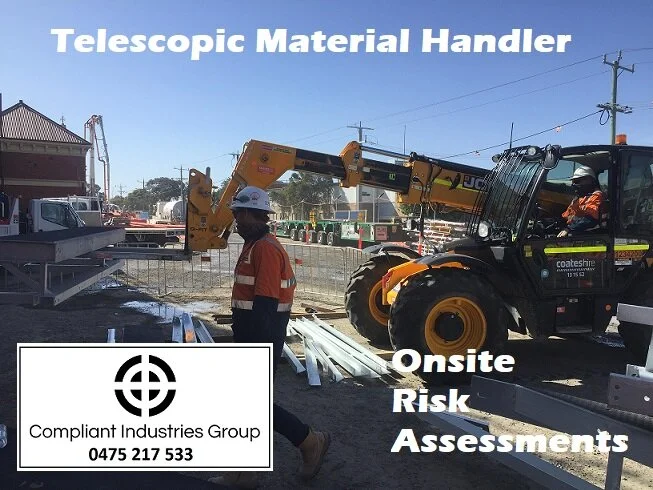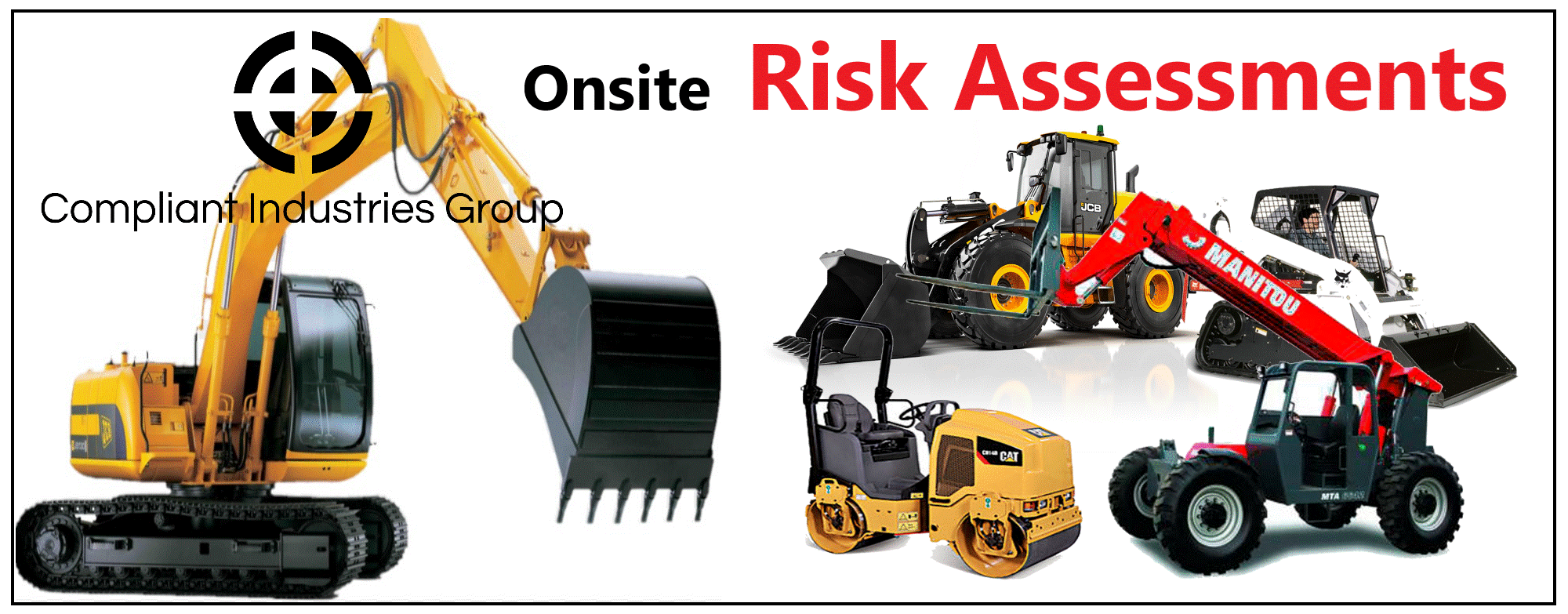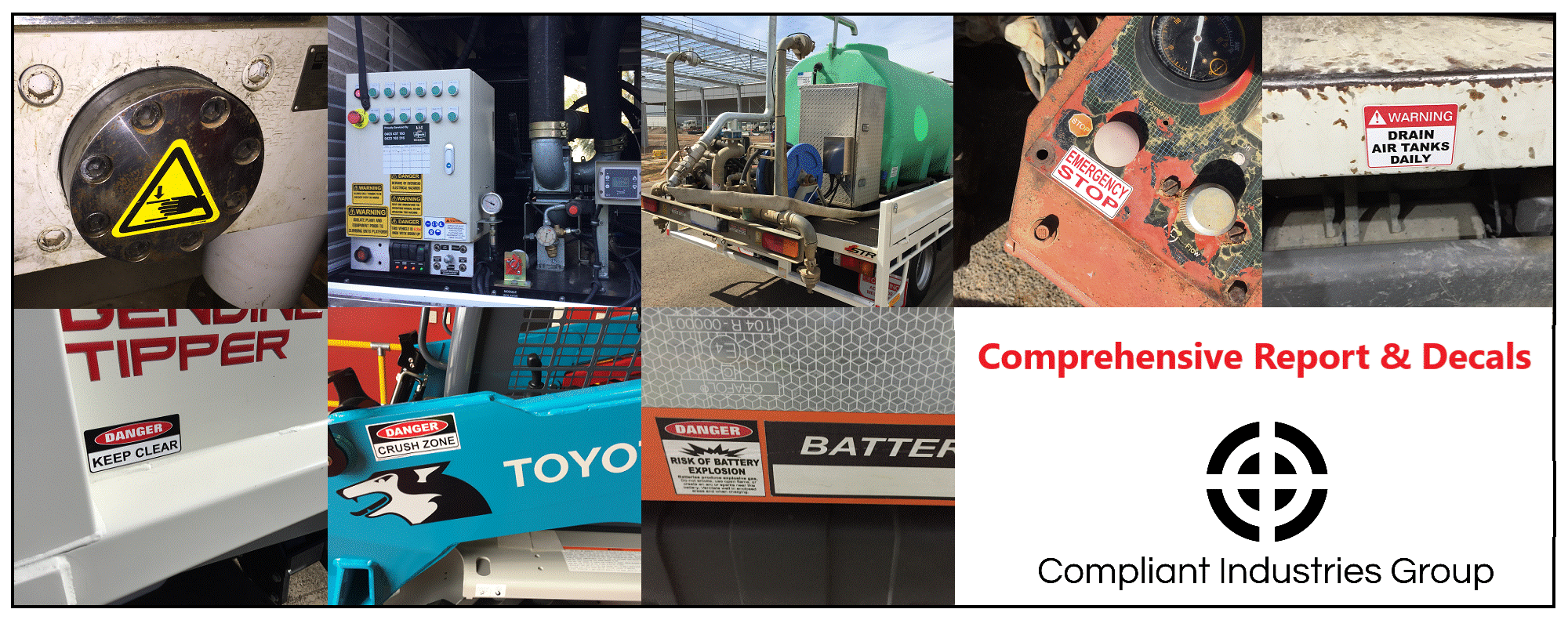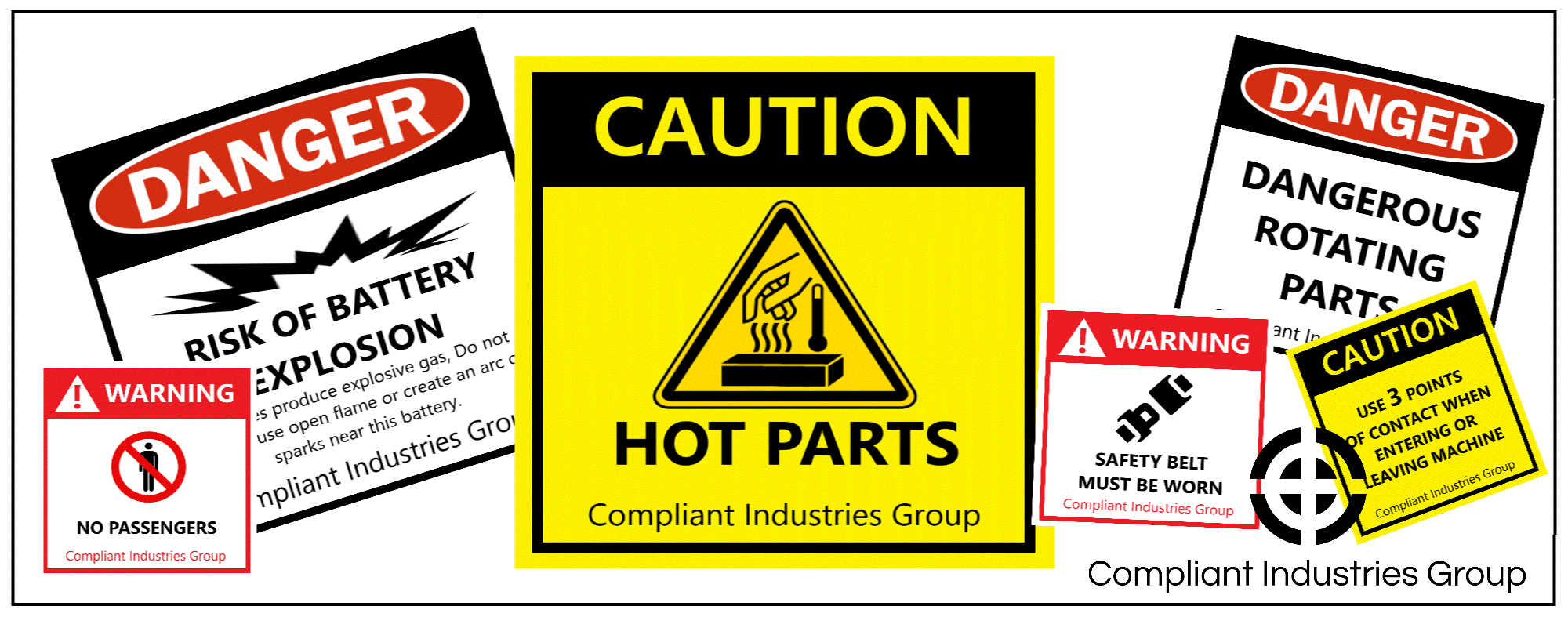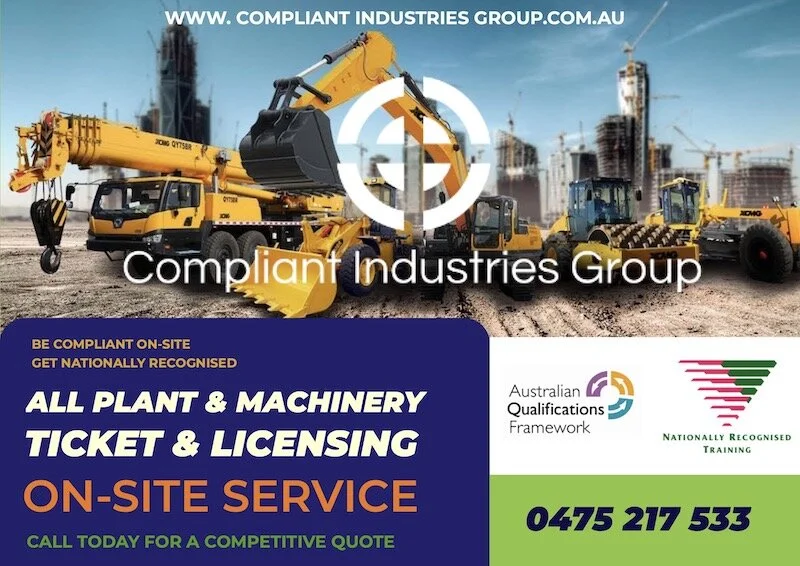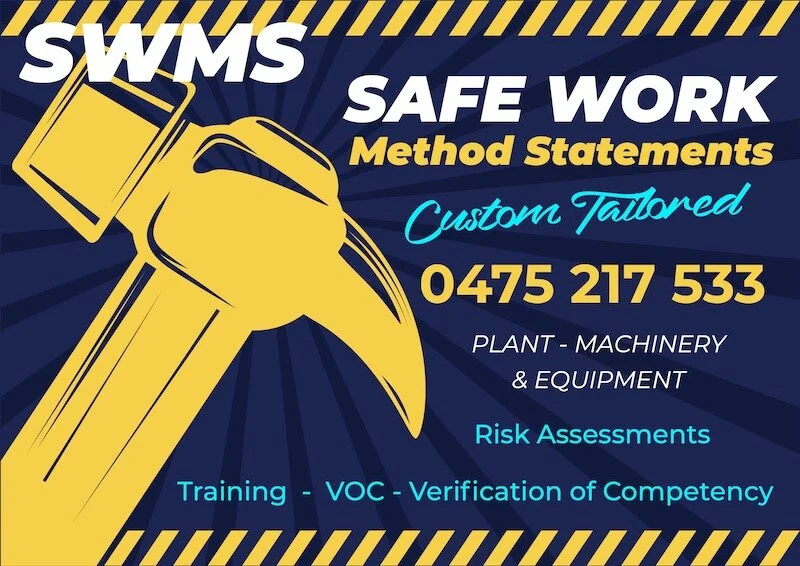TELESCOPIC MATERIALS HANDLER
RISK & HAZARD ASSESSMENT
PLANT RISK & HAZARD ANALYSIS
MELBOURNE, VICTORIA
0475 217 533
The Employer with a TELESCOPIC MATERIALS HANDLER have obligations under OHS/WHS legislation to provide that TELESCOPIC MATERIALS HANDLER in a safe condition. Part of this safety process requires a plant risk & hazard assessment of the TELESCOPIC MATERIALS HANDLER to be carried out, identifying the risks & hazards associated with its operation. This introduces safe operational controls to safeguard the operator and personnel working around the TELESCOPIC MATERIALS HANDLER.
Compliant Industries Group qualified risk & hazard assessors are experienced in a wide range of industries - civil construction, mining, transport, forestry, agriculture and oil & gas industries. We thoroughly inspect and report on the current requirements stated in the OHS/WHS Act. We track your plant risk and hazard assessments with a reminder service and contact you a month in advance of your risk & hazard assessment expiring giving you the peace of mind that your business, plant & equipment are safe and compliant.
TELESCOPIC MATERIALS HANDLER - Plant risk & hazard assessments can be carried out onsite, in or at the place of work. A comprehensive TELESCOPIC MATERIALS HANDLER plant risk & hazard report, inspection compliant safety sticker are issued on completion. Call today for great discounts on more than 1 item plant risk assessment.
Compliant Industries Group hazard and risk assessors are qualified & experienced on the plant and will go through every aspect of your TELESCOPIC MATERIALS HANDLER in a thorough process.
The areas covered in the comprehensive TELESCOPIC MATERIALS HANDLER risk and hazard report are:
1. ENTANGLEMENT: Can anyone’s hair clothing, gloves, necktie, jewelry, cleaning brushes, rags and other materials become entangled with moving parts of plant or materials in motion?
2. CRUSHING: Can anyone be crushed
3. CUTTING: Can anyone be cut, stabbed or punctured
4. SHEARING: Can anybody’s body parts be sheared between two parts of the plant or between a part of the plant and work structure?
5. HIGH TEMPERATURES: Can anyone be burnt due to contact with moving parts or surfaces of the plant or materials handled by the plant?
6. STRIKING: Can anyone be struck by moving objects
7. HIGH PRESSURE FLUID: Can anyone come into contact with fluids under high pressure?
8. ELECTRICAL: Can anyone be injured by electrical shock or burnt
9. FALLING – SLIPPING: Can anyone using the plant or in the vicinity of the plant, slip, trip or fall from heights over 2 meters?
10. ERGONOMIC: Can anyone be injured
11. SUFFOCATION: Can anyone be suffocated due to lack of oxygen or atmospheric contamination?
12. OTHER HAZARDS: Can anyone be injured or suffer ill-health from exposure to chemicals, toxic gases, or vapors, fumes, dust, noise, vibration, radiation or other factors not mentioned?

